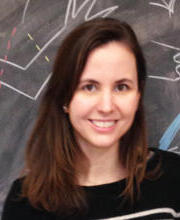Jessica L. Whited
Assistant Professor of Stem Cell and Regenerative Biology

Humans and other mammals have extremely limited regenerative capabilities in key parts such as limbs. Nearly two million Americans are currently living with the consequences of having undergone limb amputation due to injury or disease, and this number is expected to rise. No biological therapeutic has been devised to address this problem. In contrast, many salamanders can replace entire lost limbs throughout life, and these limbs are anatomically similar to human limbs. While salamander limb regeneration has been known for centuries, much of the mechanistic detail at the molecular level has remained elusive. A crucial question is how salamanders use the blastema, a collection of relatively dedifferentiated cells derived from stump tissues such as muscle and bone, to orchestrate the regeneration of an entire limb. Using a blastema to regenerate a new limb is a remarkable feat of natural cellular reprogramming. Mammals do not respond to amputation by creating blastemas, and this difference may underlie their inability to regenerate. In the Whited lab, we are studying limb regeneration in axolotls, a species of salamander for which we--and others--have recently developed critical molecular biological tools. We aim to understand the molecular mechanisms that enable the formation, growth, and differentiation state of the axolotl blastema so that this insight can later be used to understand why mammals cannot regenerate limbs.
Contact Information
Brigham and Women's Hospital
BTM, Room 7016D
60 Fenwood Rd.
Boston, MA 02115
BTM, Room 7016D
60 Fenwood Rd.
Boston, MA 02115
p: 857-307-5484
